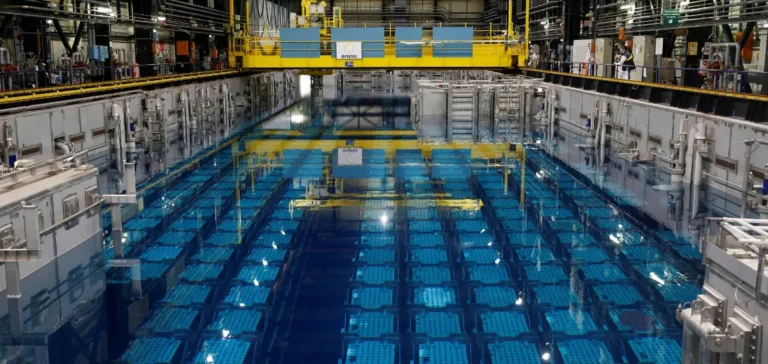The French government is launching a four-month public debate on radioactive materials and waste management starting October 13, as part of the development of the sixth Plan national de gestion des matières et déchets radioactifs (PNGMDR) for the 2027–2031 period. The debate, led by the Commission nationale du débat public (CNDP), is a legal requirement in the revision of this strategic document, updated every five years.
A national roadmap covering the entire waste cycle
The PNGMDR aims to provide a comprehensive overview of radioactive substances present across the country, while anticipating future needs for treatment, storage and research. It must also specify the operational actions to be implemented, taking into account the evolution of the nuclear fleet and the emergence of new volumes, particularly from the medical sector and the industrial relaunch of civil nuclear power.
A series of meetings will be held throughout France until February 10, 2026, including in-person workshops and digital platforms to encourage participation. The initiative will include unusual formats, such as a fictional tribunal organised in partnership with a media outlet to examine today’s decisions from the viewpoint of future generations.
Cost and storage remain sensitive issues
Discussions will focus on the cost of storing long-lived low-level radioactive waste, infrastructure options, and the economic implications for local areas. The Centre industriel de stockage géologique (Cigeo) project, located in Bure in the Meuse department, remains central to ongoing questions. Intended to house the most hazardous waste 500 metres underground, the site has been excluded from public meetings due to strong local opposition.
According to the CNDP, the preparatory phase revealed strong concerns over the ethics of long-term storage, territorial acceptance and financial issues. Organisers stated that some local stakeholders in Bure had asked that no meetings be held there, citing ongoing tensions.
Youth participation and outreach to new stakeholders
The CNDP aims to engage younger generations through digital platforms and participatory formats. It also intends to involve stakeholders who have so far been underrepresented in such consultations, in order to broaden the range of viewpoints on the future direction of the PNGMDR.
The Ministry of the Economy stated that the conclusions of this public debate will help shape the final draft of the plan in 2026 for implementation in early 2027. The document will serve as a working basis for industrial operators, regulatory authorities and local governments involved in monitoring and hosting nuclear waste management facilities.






















